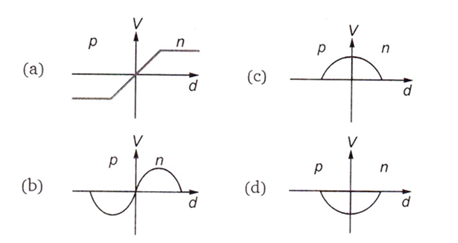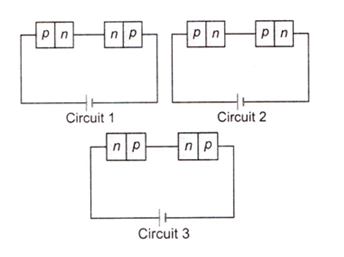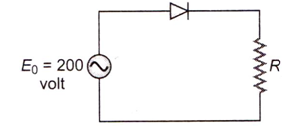Semiconductors(11th And 12th > Physics ) Questions and Answers
Explanation:-
Answer: Option C. -> neutral:
C
N-type semiconductor is having excess of free electrons (unbound electrons) for conduction. The total number of electrons in an atom is equal to total number of protons in the nucleus. Therefore, n –type semiconductor is neutral.
Explanation:-
Answer: Option B. -> circuit 2 and circuit 3:
B
In circuit 1, N is connected with N, which is not a series combination of p-n junction. In circuit 2, each p-n junction is forward biased, hence same current flows, giving same potential difference across p-n junction. In circuit 2, each p-n junction is reverse biased; same leakage current will flow, giving equal potential difference across each p-n junction diode.
Explanation:-
Answer: Option C. -> 200√2:
C
If half wave rectifier the output voltage is the RMS voltage
=Vo√2=200√2
Explanation:-
Answer: Option B. -> 50 Hz:
B
In half wave rectifier, we get the output only in one half cycle of input AC therefore, the frequency of the ripple of the output is same as that of input AC ie, 50 Hz.



